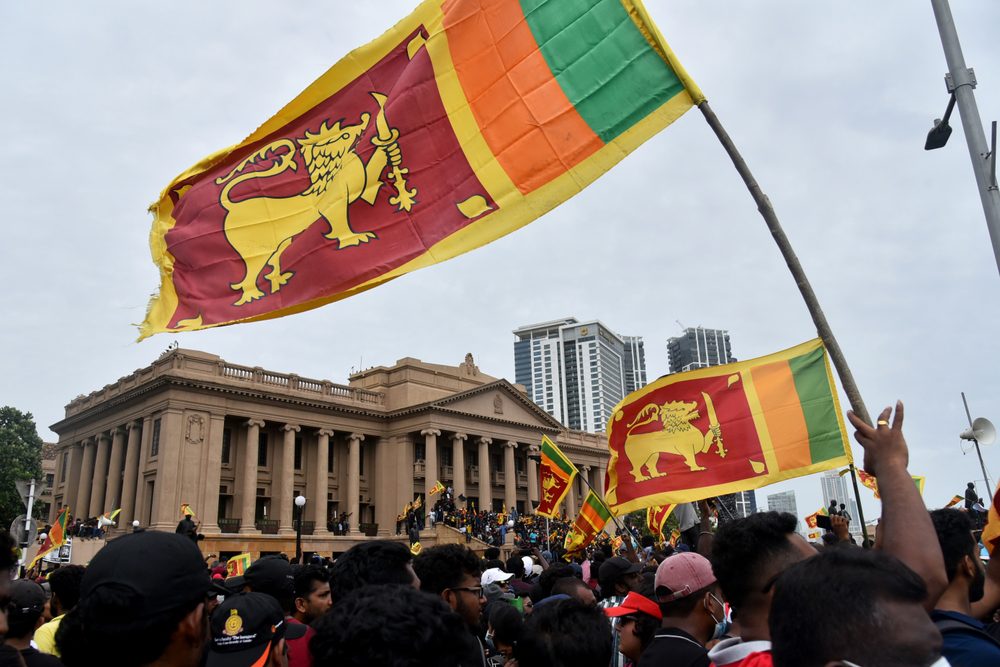
In recent weeks, images of rebelling protesters in Sri Lanka have risen to international prominence, as videos of protesters burning the private homes of politicians and storming the presidential palace have gone viral. President Gotabaya Rajapaksa, who belongs to a family that dominated Sri Lankan politics for the past two decades, has since fled the country to Singapore and submitted his resignation. On Wednesday, July 20th, the Sri Lankan parliament elected reigning Prime Minister Ranil Wickremesinghe as Rajapaksa’s successor, but it remains to be seen whether Wickremesinghe, whose resignation was also demanded during the protests, will bring back peace, stability, and prosperity to Sri Lanka.
What led to such an escalation? Over the past months, the country has been brought to the brink of complete economic collapse, experiencing severe shortages of fuel, food, and medication.
Multiple factors were to blame, one being a severe drop in tourism. A bombing in 2019 and the outbreak of COVID crushed Sri Lanka’s tourism industry, worth approximately between $3 to $5 billion per year. And just when tourism was about to pick up again, the invasion of Ukraine by Russia hit Sri Lanka even harder. Russia and Ukraine are the first- and third-largest tourist markets of Sri Lanka, responsible for a third of total tourists of the Asian nation; their absence has left many Sri Lankans without an income. The war also drove up the prices of energy and food to hitherto unknown heights, leaving Sri Lankans unable to purchase even the most basic of commodities necessary for survival.
According to the author and founder of the Environmental Progress organization Michael Shellenberger, Sri Lanka’s ban on chemical fertilizers in April 2021 bears the most responsibility for Sri Lanka’s downward spiral. While the ban catapulted Sri Lanka to an almost impeccable ESG (Environmental, Social, Governance) score of 98, it meant a third of the farmland was to be left dormant in 2021. More than 90% of Sri Lankan farmers relied on the use of chemical fertilizers prior to the ban; as a result, 85% experienced crop losses following the ban.
Rice production fell by 20%, while at the same time prices rose by 50%. Where previously Sri Lanka was self-sufficient in terms of rice production, it now had to import rice worth $450 million. Some regions saw reductions of up to 60% in harvest.
On top of these self-inflicted food shortages, the fertilizer ban also ruined Sri Lanka financially. Tea exports, which generated more than $1 billion annually, had previously paid for large parts of food imports prior to 2021. Without fertilizers, tea exports dropped by 18% between November 2021 and February 2022, their lowest in more than two decades.
Attempts by then-president Rajapaksa to backpedal came too late. At the end of the year, amidst ensuing chaos, Rajapaksa admitted that there were not enough chemical fertilizers “because we didn’t import them.” When in May 2022, Sri Lanka failed to make $77 million of foreign debt repayments, it further devalued the currency. With inflation rising up to 30%, the government was no longer able to import any of the basic necessities, such as fuel, food, and medical supplies.
Tensions erupted into the protests that ultimately led to the abdication of President Rajapaksa. But the election of Wickremesinghe, a former close ally of Rajapaksa, raises legitimate questions about whether the tide of turmoil has turned already. Wickremesinghe was elected by Sri Lankan MPs with 134 votes to 82, and gained the support of the ruling Sri Lanka Podujana Peramuna (SLPP) party. SLPP General Secretary Sagara Kariyawasam referred to Wickremesinghe as “the only person with the experience, the know-how and the capacity to provide solutions to the economic crisis.” Wickremesinghe aims to restore political stability so he can resume negotiations with the International Monetary fund for a bailout package.
It remains to be seen, however, whether protesting Sri Lankans will be on board with Wickremesinghe. Protesters consider the newly elected president to be part of the political elite that caused the country’s economic failure. Activist Jeana De Zoysa told the BBC that she was “absolutely disgusted at the result,” and felt that the MPs “completely disregarded the wants of the people.” Protesters fear that Wickremesinghe might crack down hard on the protest movement.
The last chapter in this story of Sri Lankan misfortune might not be written yet, but the societal collapse of Sri Lanka is already now a dire warning to all nations how a pandemic, a war, and misguided ecological policies can become an explosive cocktail that can push a society over the edge. May we all heed the warning.
